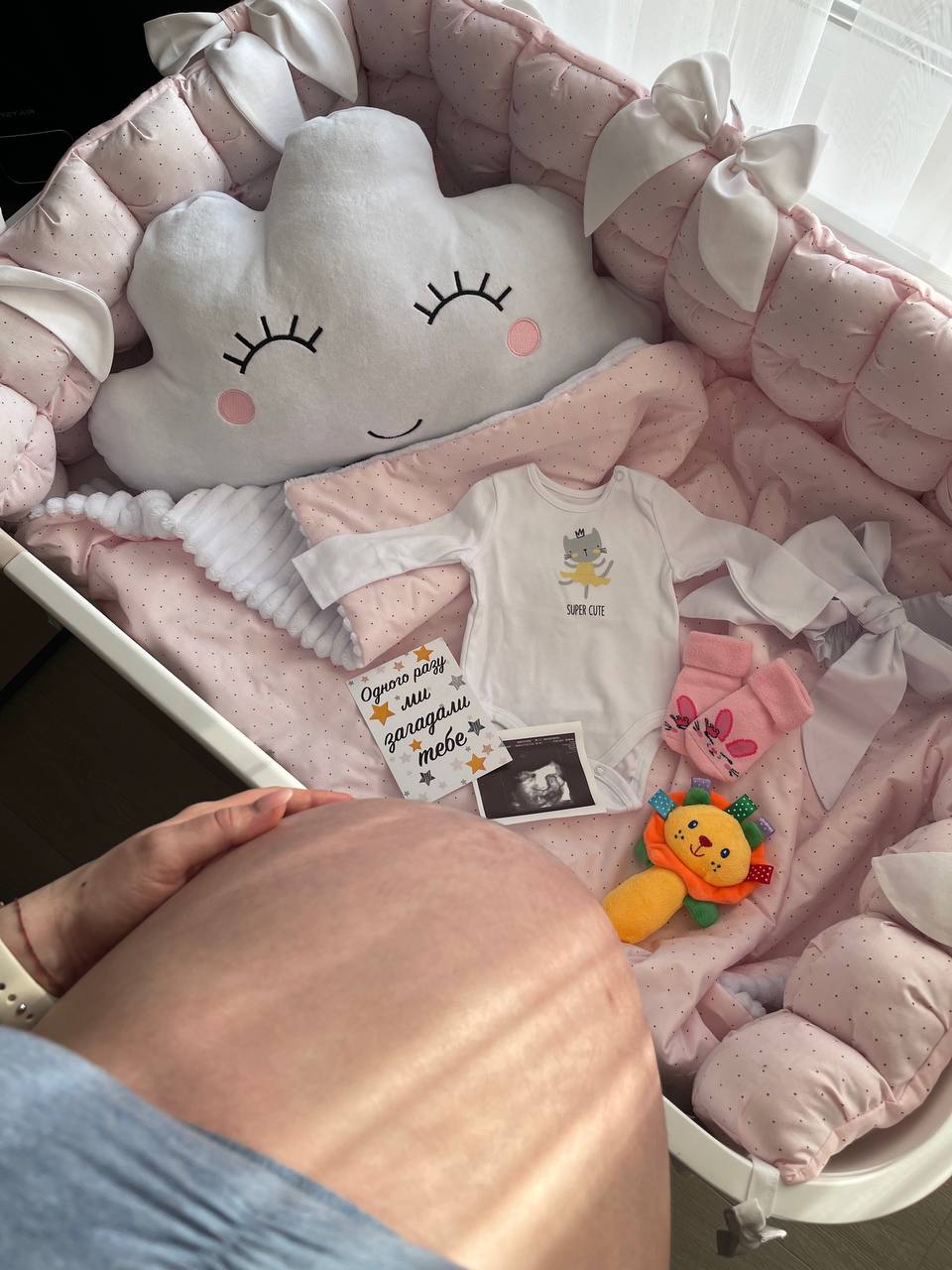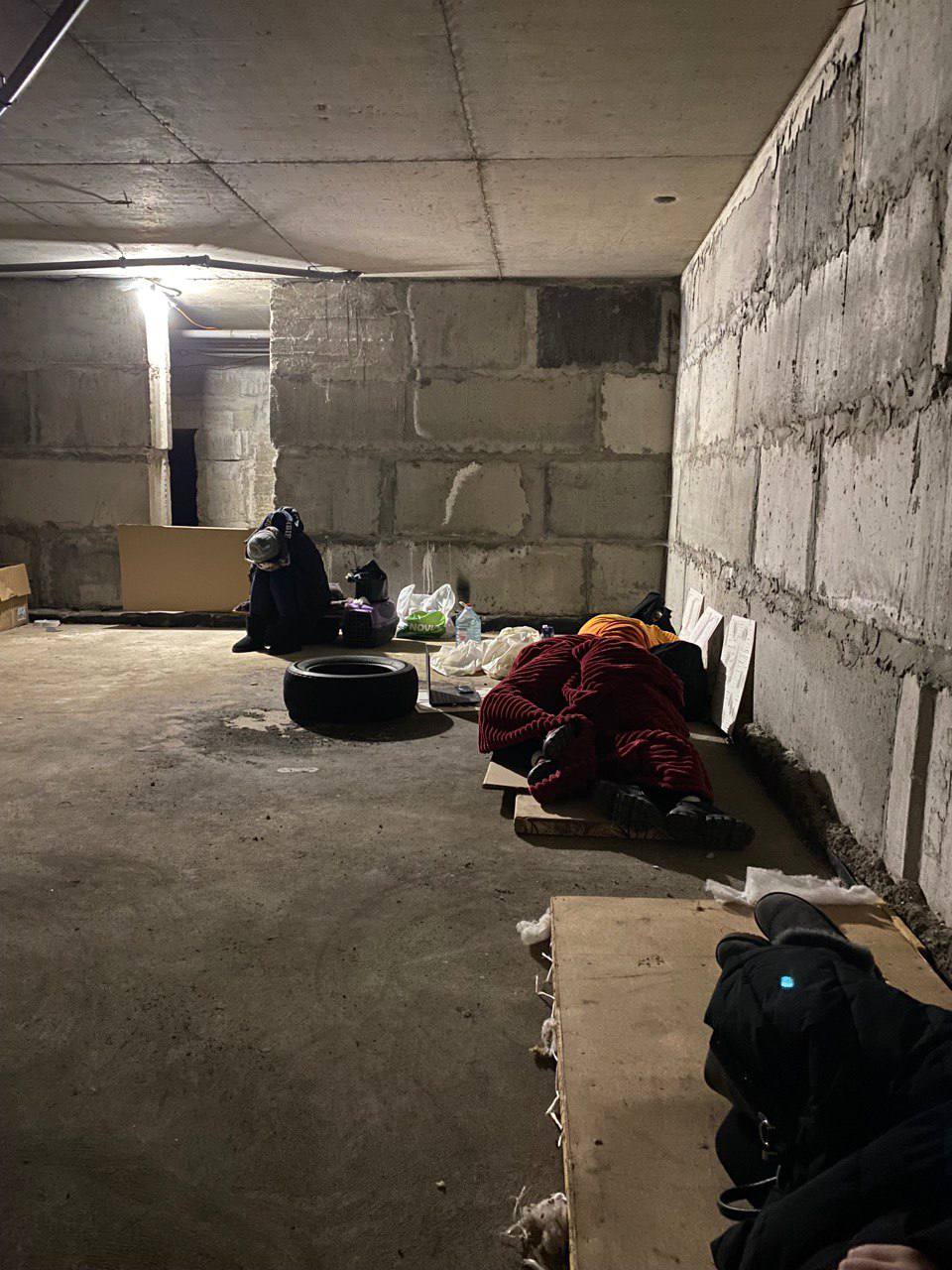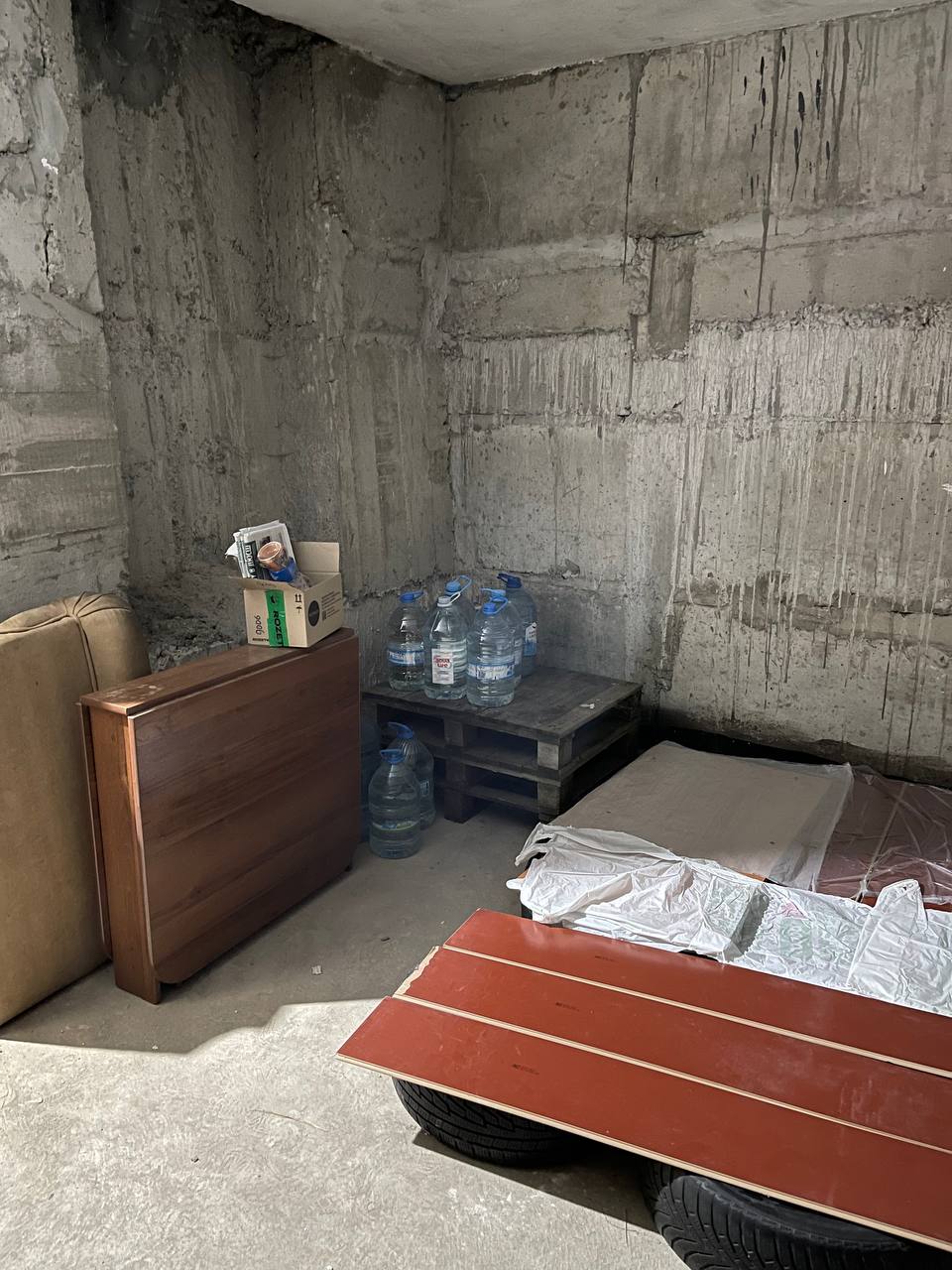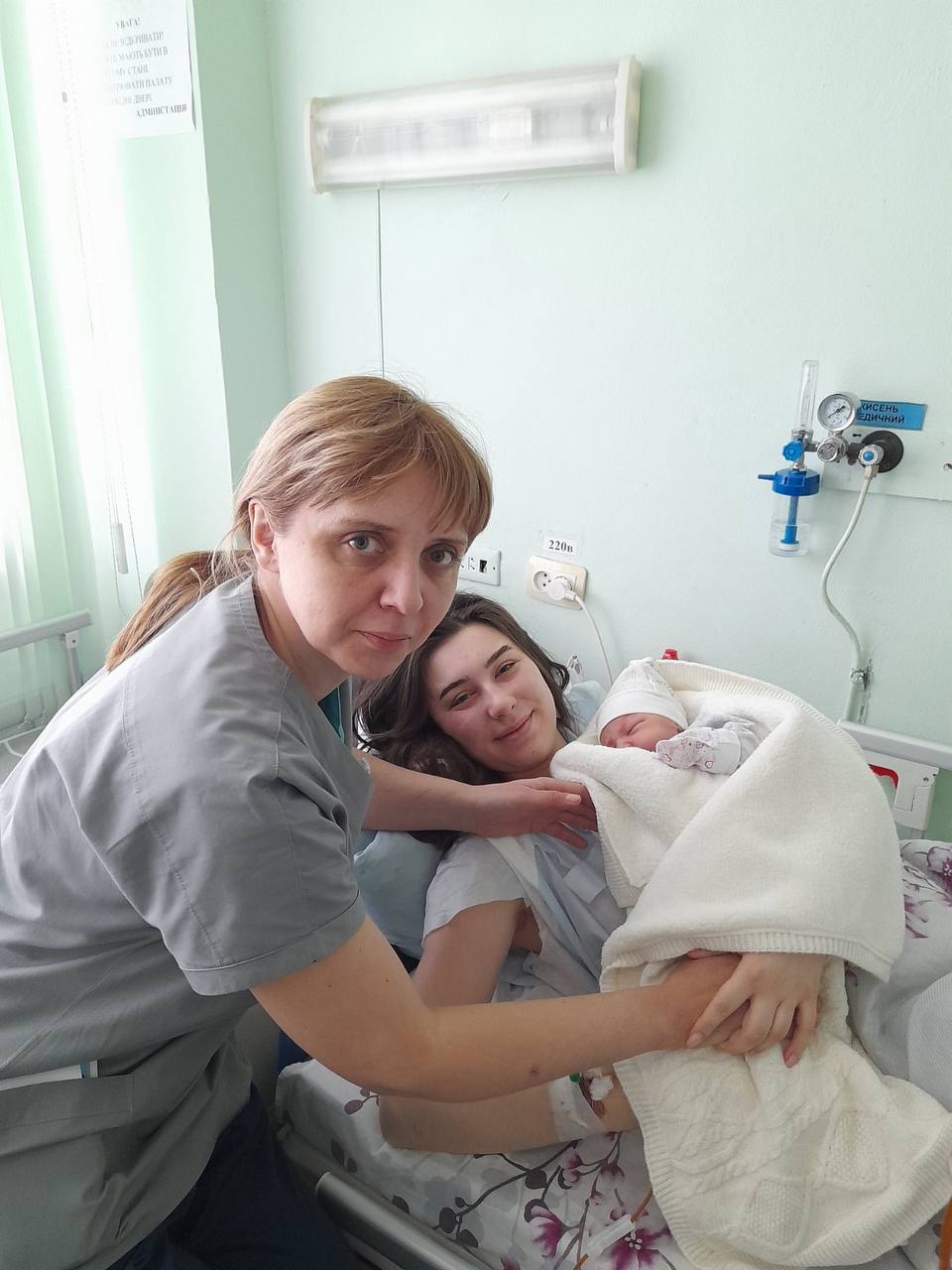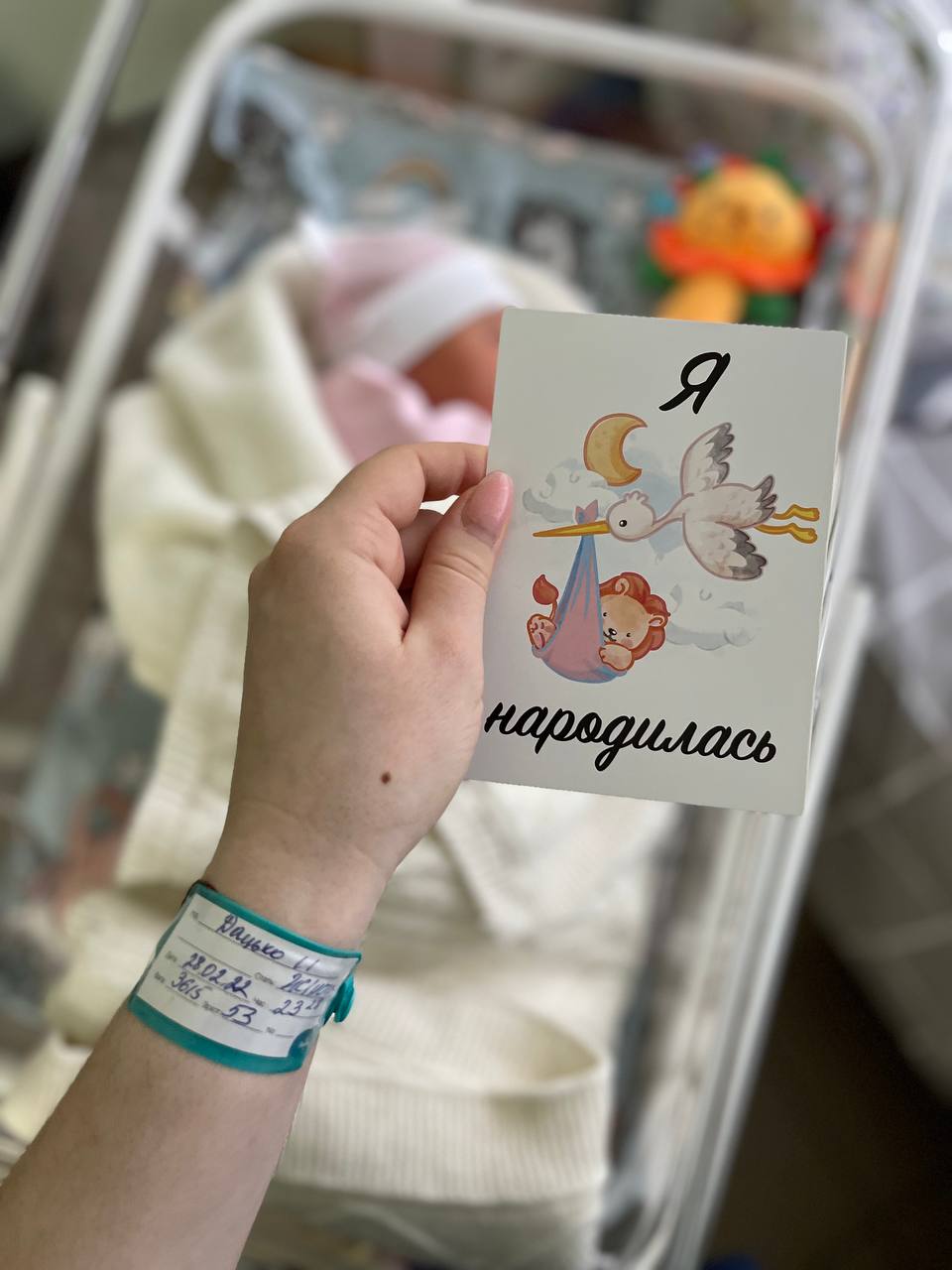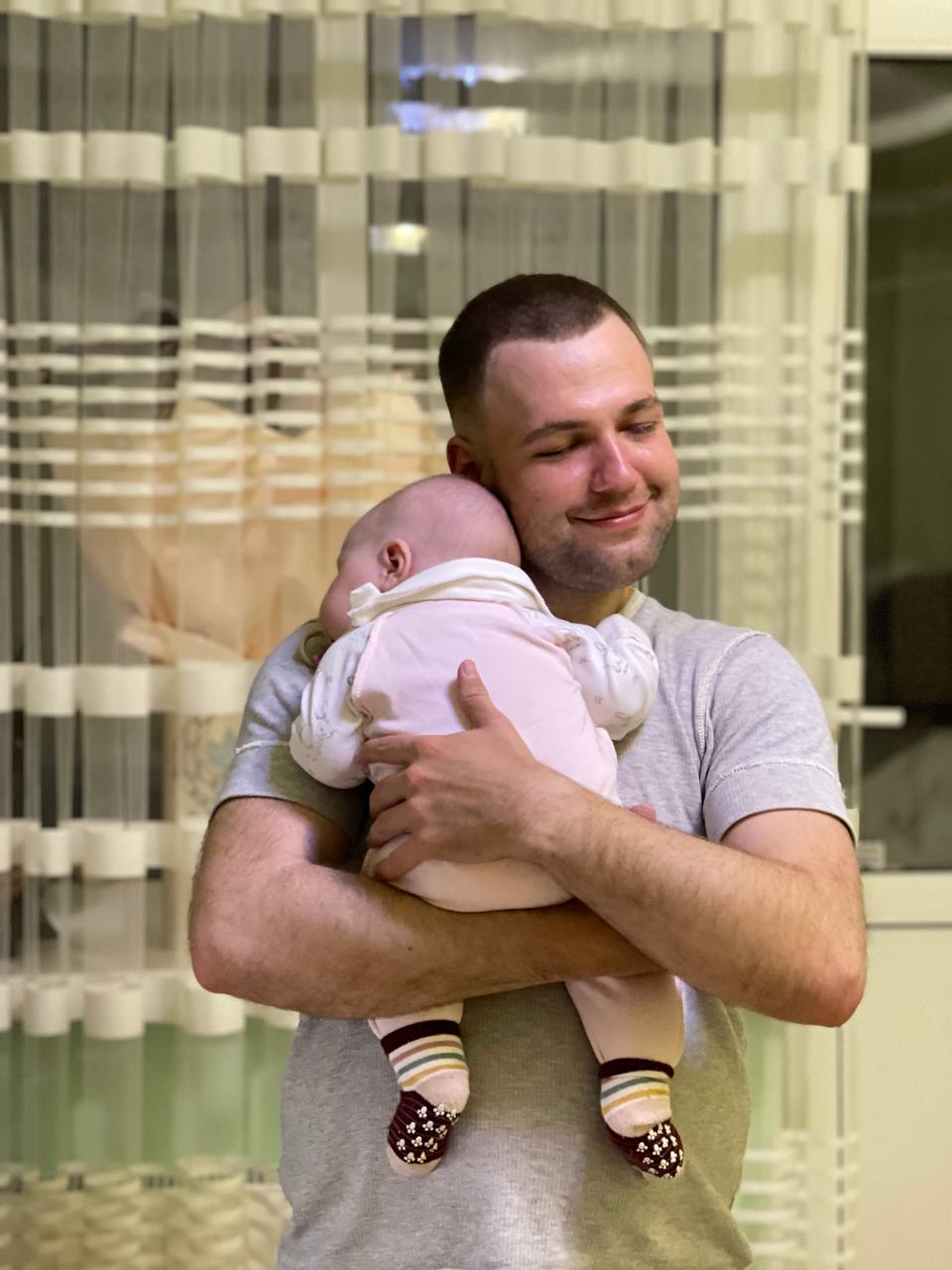
The Ukrainian people have a proverb: "Death and families don't wait for a good moment." No one expected it would be so relevant for our country this year. Could there be a worse "moment" to give birth than war? Especially when it's the beginning.
The heroine of the third issue of the Women's Health During War special project experienced this firsthand. She gave life when death was raging around—under shelling, with the sounds of explosions, and in fear not only for herself but also for her daughter. Although the birth happened in semi-darkness, the hospital's staff was shorthanded, and the new mother had health complications, our heroine managed to live through this ordeal. Eight months ago, she became a mother.
Inna Datsko is a military servicewoman on maternity leave. She told her birth story in the new video at the link and in this article.
"Something is wrong. There will be a war"
"I decided to become a military officer while studying at school. My dad is a military man, says Inna. "My mother asked me if it would be better to attend civilian school. But I chose military service."
Inna recalls how her mother was worried about her daughter's choice. After all, it was 2016, and the country had been at war for two years. It meant that choosing the military path is tying oneself to serving the Ukrainian people and being ready to defend the country at any moment. Ultimately, the woman made her choice, which she does not regret. After graduating from the university, she immediately entered the air force and served there for a year until she discovered she was pregnant.
"My husband is also a soldier. And now he is not with us. He serves in the army. My daughter and I left Kyiv for my parents after I gave birth. Now we live there."
The woman says that her first memories of the beginning of a full-scale invasion are not associated with February 24.
"Two weeks before [the invasion], my husband and I were sitting in the kitchen, thinking that we would soon have a new baby. And he suddenly says: 'Something is wrong. There will be a war.' I say: 'No, everything will be fine! We will have a baby, and everything will be as great as it can be.' And he says: 'You'll see.'"
This conversation was stuck in Inna's memory, and she still remembers how on February 24, she heard "War" on the phone. The doctors said the child would be due on February 26. The woman was waiting for her daughter to appear with her mother because her husband was on duty. And this word "war" separated them for three months. Only after this time could he see his child for the first time.
"Sorry, but the maternity ward is closing"
"And there are explosions near our house. I was a little scared, but my mother held on. I feared for the child first: the birth was coming soon. How should it all be? The husband is always on the phone. We hear the whistling of rockets and the sounds of explosions. It was terrifying."
For several days, Inna and her mother spent the night in the basement, which was unsuitable for a pregnant woman.
"There was no place for me to sit or lie down. The floor is concrete. People from the apartments brought some old doors, stools, and blankets. It was impossible to breathe. We were there at night and went home in the morning to get some sleep. Besides, I will say that when you're pregnant, your stomach tightens when you're scared. And this spasm is so painful that I even thought I had practice contractions for the first two days."
Inna was due to give birth on February 26. But literally, everything went differently than planned. The woman decided to schedule the delivery on the 28th on the phone with the doctor. But she could not give birth in the hospital where they had planned.
"The head of the maternity department calls me: 'Sorry, but we are closing.' The building is in the city's center, and they could not receive pregnant women. I immediately contacted my doctor and agreed that we would give birth in the maternity hospital in Obolon [Kyiv city district — ed.] or at the doctor's home if the contractions suddenly started at night."
The woman did not even know that her mother was preparing for the worst: she would have to deliver her grandchild herself. An accountant by education, the woman studied videos about childbirth and packed an emergency suitcase in case of sudden contractions.
"In this suitcase were warm and cold water, gloves, warm clothes for me and the baby, and all the necessary medicines. My mother didn't tell me this. Apparently, she wanted to program for the positive outcome that I will give birth in the maternity ward," Inna recalls with a smile.
"As soon as I cross the threshold, the siren starts. We hear explosions"
When the day came to go to the maternity hospital, the most challenging task was to find transport: there were no taxis, and the prices were exorbitant. The doctor helped Inna arrange transportation with volunteers.
"We got up at 6 in the morning. We were supposed to leave around 7 or 8 o'clock. In fact, we left at noon. And as soon as we got to the hospital, I started having contractions immediately."
But it was on that day that Obolon was almost the most dangerous city district of Kyiv. All Ukrainians may remember videos of russian tanks in city yards. So these videos were from that city district.
"We entered the delivery room. Then everything felt like I was in a movie: as soon as I crossed the threshold, the siren started, and we heard explosions. I can't say I was scared. I was so emotional, you know… I need to give birth. I have a different goal. But the doctors were very worried. I could see it on their faces. At first, they wanted to move to the basement, but the midwife insisted that I give birth in the delivery room. Everyone was afraid that it would last a long time. Because they didn't do a cesarean section on me."
The hospital was understaffed that day. Due to light masking, the baby was born under the light of a telephone flashlight. And Inna also had a complicated delivery: the placenta did not expel, and the doctors needed to operate.
"My husband was supposed to be at the birth but was not allowed to leave the service. So I asked my mother to be with me. Of course, she was allowed. And then, it got to the point that the doctors even asked her to participate in the delivery. She turned off her maternal feelings and took control of herself. But my mother never thought that she would have not only to see how her granddaughter was born but also help her come into the world."
"Mom, is Vasiunia texting?"
Inna's husband could not come either for the delivery or the check-out. He saw his daughter only three months later. But even though literally everything in the Datsko family did not go according to plan, Inna says that she would not have left Kyiv even if she knew that a full-scale war would begin on February 24.
"I chose a doctor, and if I chose her, I want to give birth only with her. We had the opportunity to leave before the 28th of February. But I refused. Imagine how important it would be to quickly find an obstetrician during the war. And there is so much stress. I needed something to be stable."
During childbirth, Inna realized that now was a war and that she and her child were in danger. But at that moment, she was worried about more than that.
"When I gave birth, I had one question: 'Mom, is Vasiunia texting?" Vasiunia is my husband. 'Yeah, he's fine,' Mom says. And then I am calm. To be honest, I was aware of the war, but I was as if in euphoria. I'm fine now. I'm giving birth. You know, giving birth is not scary, but it's not easy either."
Now Inna's daughter is eight months old. After giving birth, the woman had a long rehabilitation, but now everything is fine. The only thing they are waiting for is the end of the war and the return of dad home. And the woman advises only one thing to women who are going to give birth: do it and try to be in harmony with yourself and calm down.
The project is carried out with the support of the Independent Regional Publishers of Ukraine Association as part of implementing the grant project The Women in News from WAN-IFRA. The authors' views do not necessarily coincide with the official position of the partners.





